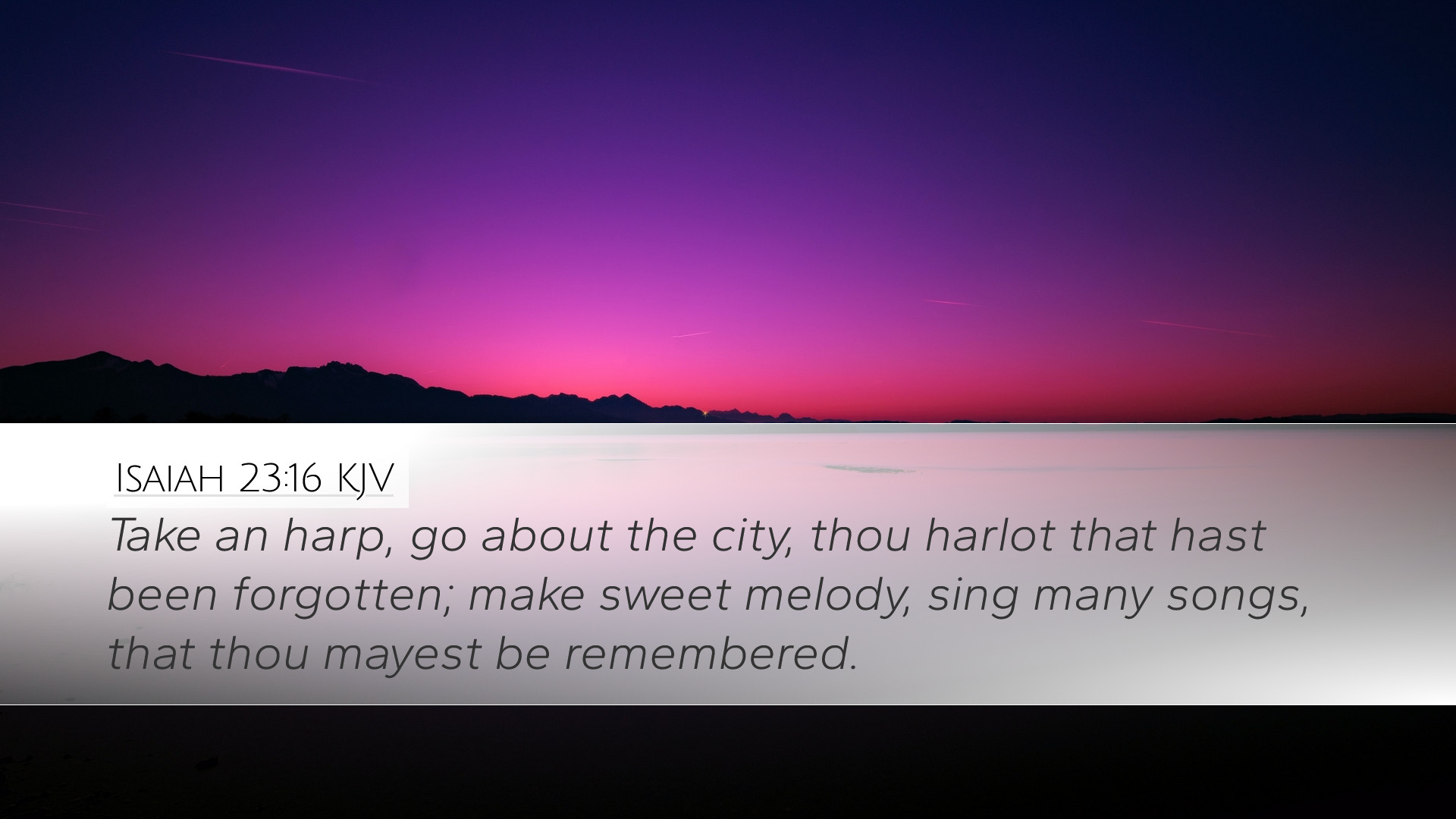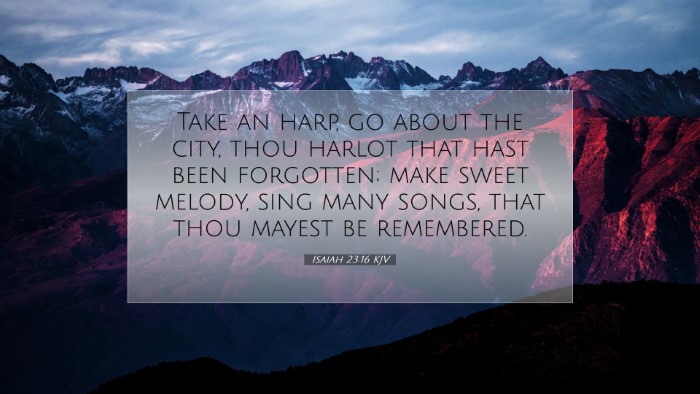Commentary on Isaiah 23:16
Verse Context: Isaiah 23:16 states, "Take a harp, go about the city, thou harlot that hast been forgotten; make sweet melody, sing many songs, that thou mayest be remembered." In this verse, the prophet Isaiah addresses Tyre, a significant city in ancient Phoenicia, known for its wealth and commerce.
Introduction
Isaiah 23 is a prophetic declaration against Tyre and Sidon, cities synonymous with trade and luxury. This verse can be interpreted as a poignant metaphor illustrating the inevitable consequences of spiritual and moral decline.
Historical Context
The city of Tyre was a powerful maritime hub during Isaiah’s time, known for its trading prowess and influence. Yet, this verse speaks to a future where Tyre's glory fades, and a stark reminder emerges of the transience of human pride and achievement.
Commentary Insights
Matthew Henry's Commentary
Understanding Harlotry: Henry draws attention to the term "harlot." He suggests this nomenclature represents Tyre's unfaithfulness to God, choosing instead to pursue earthly pleasures and alliances from which she would ultimately suffer. Henry notes that this imagery conveys a call for mourning and reflection.
Albert Barnes' Commentary
Musical Instruction: Barnes notes the significance of the harp as a symbol of remembrance and lamentation. The call to "make sweet melody" indicates an acknowledgment of loss, suggesting that the people of Tyre must remember their past glories even as they face downfall. This act of music serves as a bittersweet reminder of what was lost due to their moral neglect.
Adam Clarke's Commentary
Imagery of Memory: Clarke elaborates on the metaphor of the "forgotten harlot," emphasizing that it serves two purposes. First, it depicts a city that once flourished but now faces obscurity. Second, the act of singing is not merely for entertainment but serves a deeper purpose of invoking remembrance within the hearts of the people and their leaders, pushing them to reflect upon and repent for their abandoned principles.
Theological Implications
- Divine Judgment: This verse illustrates the concept of divine judgment against nations and cities that deviate from God's commandments. Tyre’s judgment serves as a warning to all who may walk a similar path.
- Remembrance and Repentance: The call to sing and remember signifies that even in the face of judgment, there lies an opportunity for repentance. The act of music, as Clarke notes, becomes an instrument for self-reflection.
- Human Fragility: The fate of Tyre advocates for an understanding of human fragility in the face of divine sovereignty. Earthly powers can fall, and glamor can fade, revealing the eternal truth of God’s reign.
Practical Applications
For pastors and theologians, this verse serves as a sobering reminder to examine the spiritual health of their communities. The decline depicted through Tyre’s narrative invites church leaders to actively foster faithfulness to God, urging congregations to reflect upon their commitments. Moreover, it encourages personal and corporate worship as a means to honor past divine interventions while seeking renewed fidelity to God.
Conclusion
Isaiah 23:16 encapsulates a profound message within a brief poetic call to remembrance that resonates deeply with contemporary believers and scholars alike. It reminds us that our pursuits should always be aligned with Divine intention over earthly allurements. The interplay of music, memory, and moral reckoning in this verse provides rich theological terrain for reflection, worship, and ultimately, transformation.


